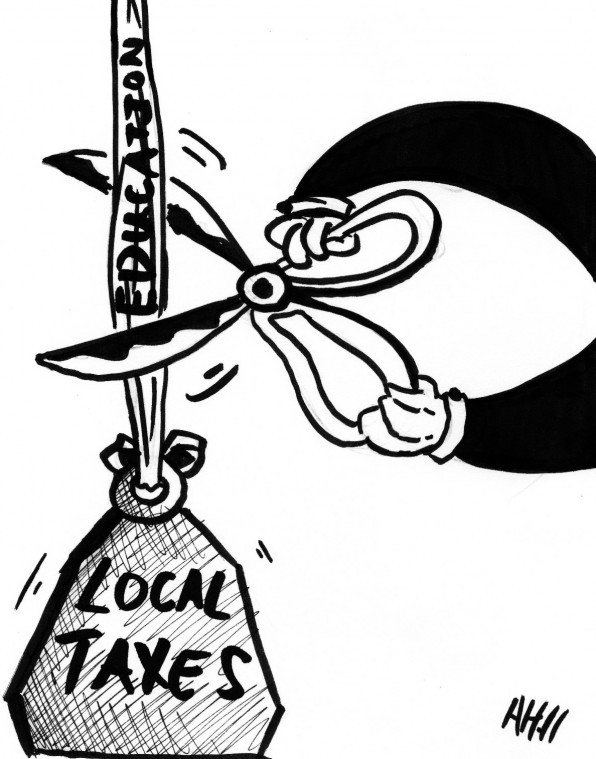Cutting funds for education will raise local taxes
March 20, 2011
Gov. Quinn’s budget proposal has come under some criticism for its plans to cut $1.3 billion in education. One portion of that cut includes cutting all funding of the state-mandated Regional Offices of Education.
If you’re like I was and have no clue as to what these offices are, they are the offices in every county that do all of the in-between stuff that you don’t think about or aren’t curious enough to ask about.
If you remember those Mondays off in high school when all the students would get real excited the Friday before and the teacher would bitterly say, “Enjoy it while I’m at the teacher’s workshop,” the ROE does that.
You know how Quinn wants to consolidate school districts? The ROE conducts those hearings. You know how homeless families are able to get help and send their kids to school? The ROE helps with that. You know who funds the facilities for at-risk students? Take a wild guess.
Gil Morrison, the regional superintendent of DeKalb County, said the list of services the ROE provides is pages long.
Whether providing courses in safety and first-aid for bus drivers or administering general education degree-testing programs, they help maintain the quality and functionality of public schools.
So if Quinn is proposing the ROE’s state funding should be cut, how are these programs and services going to continue? Morrison said Quinn and his staff are suggesting that local communities should fund them.
What this means is higher taxes on top of the personal income tax raise of 3 percent to 5 percent and the corporate tax increase of 4 percent to 7 percent.
“Boo!” said just about everyone. Let’s pretend, though, that you’re one of those people who believe local communities should govern and fund themselves. Great news then, right? Not so fast.
Morrison said the state isn’t really going to be seeing much of the tax revenue for awhile and that the ROE has to work with today’s money, not next week’s.
So no matter what your personal beliefs on how these offices should be run may be, the fact remains that they are hurting for money and the budget proposal would be just another punch in the gut of Illinois’ education.
Luckily, Quinn’s budget proposal is just that: a proposal.
So before you dismiss this as just another complaint about something that has already been established, realize this is one of those moments where you really can have some impact by writing your local legislators and making Quinn realize that education is a top priority.







